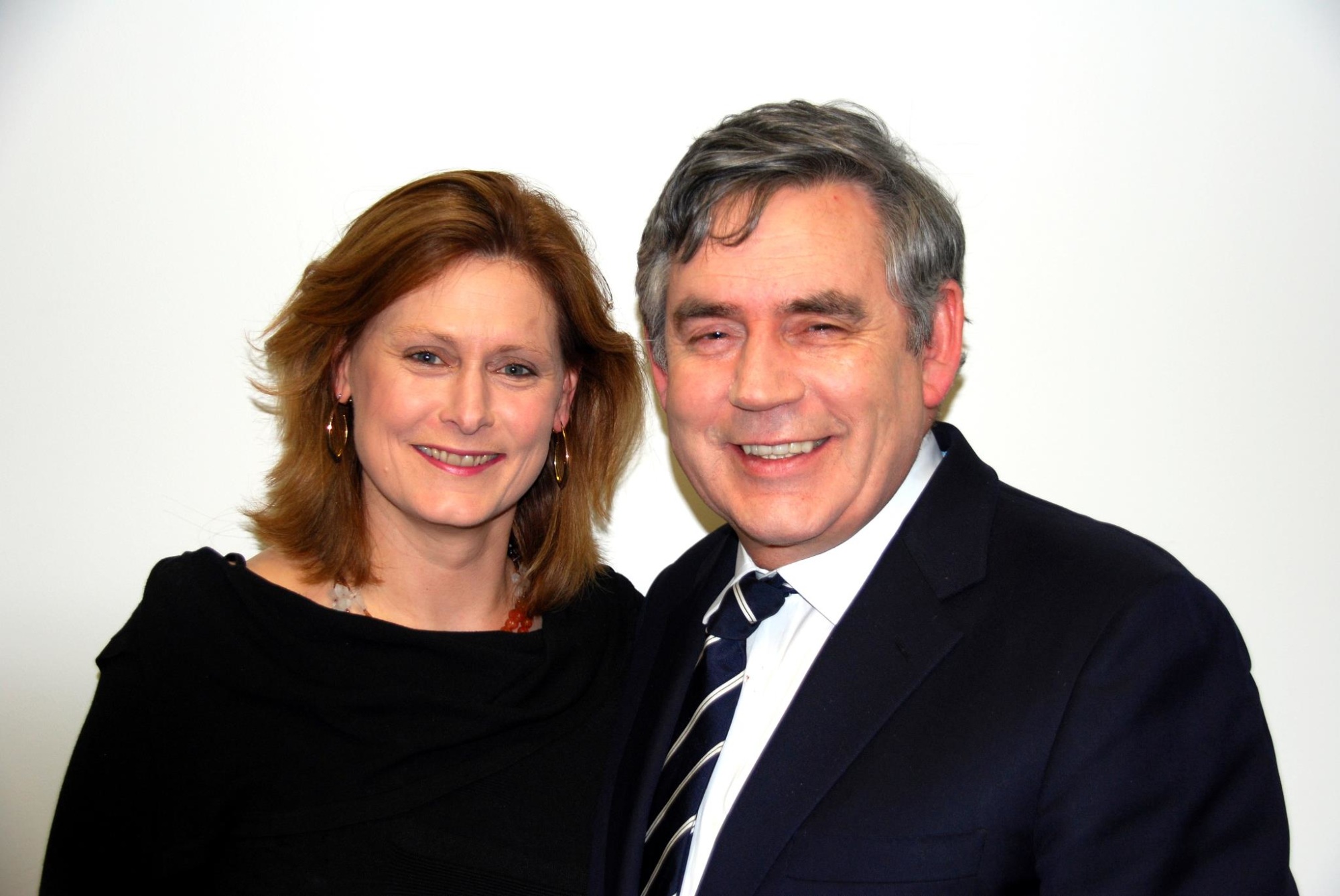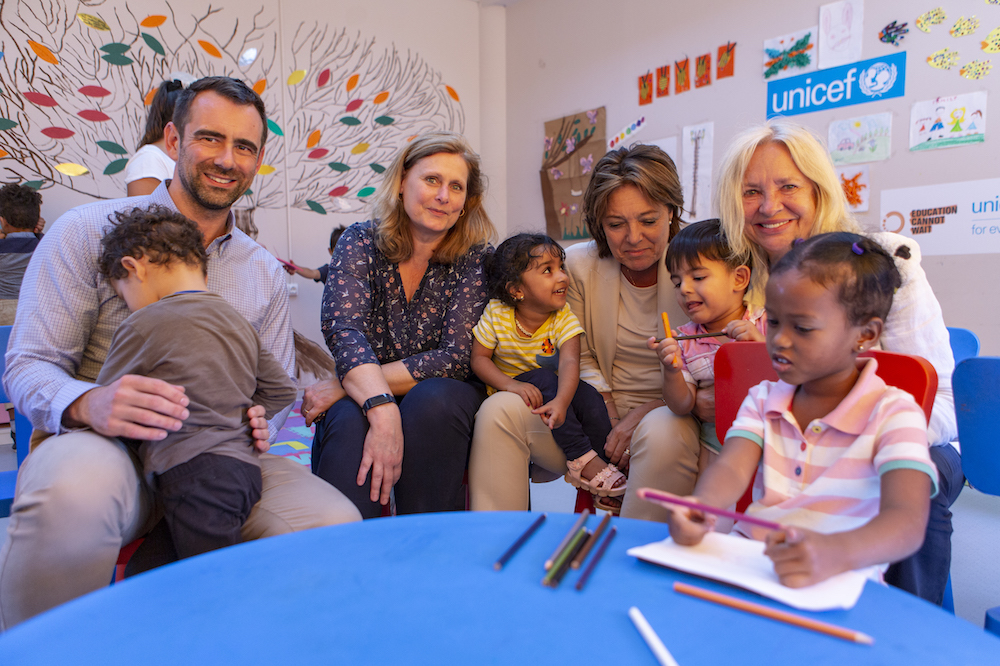
As hotels open for tourists on the Greek islands, books should open for children
Education funding, Education in emergencies, Justin van Fleet, Sarah Brown
Unlike tourists getting ready to visit, over 42,000 refugees did not travel to Greece on chartered flights or ferries. Instead, they were forced by circumstance to make a dangerous trip across the Mediterranean Sea, in many cases fleeing violence and risking drowning and death in hope of a better future.
While it may be a different summer than most – with precautions in place to stave off the coronavirus pandemic – Greece is opening up for tourists. Starting on 15 June, travel restrictions were lifted and tourists were able to begin going to their favourite islands to soak up the sun. While this is a good thing for the Greek economy, it underscores an even deeper crisis of humanity: disparity and inequity.
Nowhere is this more evident than the Greek Islands where thousands upon thousands of refugee children are forgotten – and downright ignored – by the international community.
Unlike tourists getting ready to visit, over 42,000 refugees did not travel to Greece on chartered flights or ferries. Instead, they were forced by circumstance to make a dangerous trip across the Mediterranean Sea, in many cases fleeing violence and risking drowning and death in hope of a better future. Instead, many have found themselves in what can only be described as a ‘hell on earth’ confined to overcrowded camps in the Greek Aegean islands, their point of entry to Europe.
When I visited the Moria Camp in Greece last year with Theirworld’s Chair, Sarah Brown, Education Cannot Wait’s Director Yasmine Sherif and the People Postcode Lottery Country Director Annemiek Hoogenboom, I was horrified by the conditions. What was intended to be a temporary shelter for 2,500 refugees is now one such ‘hell on earth’ for nearly 20,000 people – the many of them children and unaccompanied minors. Open sewage, no running water, lack of tents or proper shelters and reports of violence against women and adolescents. These were just some of the things we heard and saw.

In humanitarian crises, children are the most vulnerable group – and education is often the first institutional victim – further exacerbating their vulnerability. For the 31,000 refugee children in Greece, and about 10,000 on the Islands where less than 15% have any access to education –this is certainly the case. Creating school spaces for 10,000 children doesn’t require rocket science. Neither is integrating the additional refugee children on the mainland into the education system. Many countries have done so against far greater odds (e.g. Lebanon, Turkey and Jordan, for instance, who have done so with millions (not thousands), of refugees.
With political will and sufficient financing, doing so is a relatively easy and cost-effective process – with many successful examples from around the world having proved this already, offering excellent guidance and lessons to learn from. Research conducted across regions have proven without doubt that the benefits of doing so far outweigh any possible burden to society. In fact, investing in education is one of the soundest investments with the highest rate of return that any government can make, under virtually any situation.
So why have too many have failed to listen?
The recently appointed European Commissioner for Crisis Management, Janez Lenarčič, has stated that one of his top priorities is to support people in need as quickly as possible, with full respect of the humanitarian principles. And within the EU, there is an opportunity to quickly achieve this objective for vulnerable refugee children. The humanitarian principles of humanity, neutrality, impartiality and operational independence boil down to the following: protecting and respecting individuals; prioritising the most urgent cases of distress; making no distinctions based on nationality; and, taking timely action independent from political, economic or other objectives.
And it’s with the spirit of humanitarian principles that the Dutch Postcode Lottery and Theirworld have joined forces for these refugee children. What I love about Education Cannot Wait is that it brings together diverse partners for a common purpose. In the absence of public funding, Theirworld – in partnership with the Dutch Postcode Lottery and Education Cannot Wait – works alongside UNICEF, UNHCR and local NGOS to help thousands of these children realise their fundamental human right to education. By doing so, they are able to benefit from a sense of normalcy, learning and playing with their friends, and simply having a childhood with all the hope and dreams that come with it.
It’s time for governments to step and do their part... It has never been acceptable to hide, ignore or conveniently forget child and youth refugees in need of humanitarian assistance in Europe.
Our recent highlights a three-point action plan to effectively deliver refugee education in Greece:
- Mobilise an immediate €20 million in urgent financial support for 2020–2022, providing a scale up of education over two years.
- Cultivate international support for a comprehensive refugee education plan across Greece.
- Invest in the region and tackle the refugee problem closer to home.
Once again, the Dutch Postcode Lottery has stepped up to the plate so that existing education centres do not shut down this month. Their new, generous and urgently needed contribution will bridge the divide between in-person and remote learning opportunities, aiming to reach about 20,000 children with formal and distance learning, as well as in non-formal education centres adjusted to COVID-19 measures. It will prepare education centres with preventative measures to minimise the spread of COVID-19 upon reopening. This will include hygiene and medical items.
But for this to be a true public-private partnership, it’s time for governments to step and do their part.
It has never been acceptable to hide, ignore or conveniently forget child and youth refugees in need of humanitarian assistance in Europe. We must work together now to provide them with the most basic, but important, humanitarian rights, including their inherent right to education, while the broader politics are sorted out.
Why? It is good for children, who can learn, grow, develop their skills to be prepared as productive members of society. It is good for Greece, as increased funding will support Greek organisations and teachers, creating more jobs and fostering better relations between host and refugee communities. And it is good for Europe to avoid a humanitarian catastrophe within its borders which can be addressed with the right investment and commitment.
So, while many Europeans and other tourist begin to travel to Greece this week on holidays, let us not only remember to respect the dignity thousands of refugee children on the Islands, let us also take collective action to give them the education support they desperately need.
This was originally posted on Education Cannot Wait website.
More news

